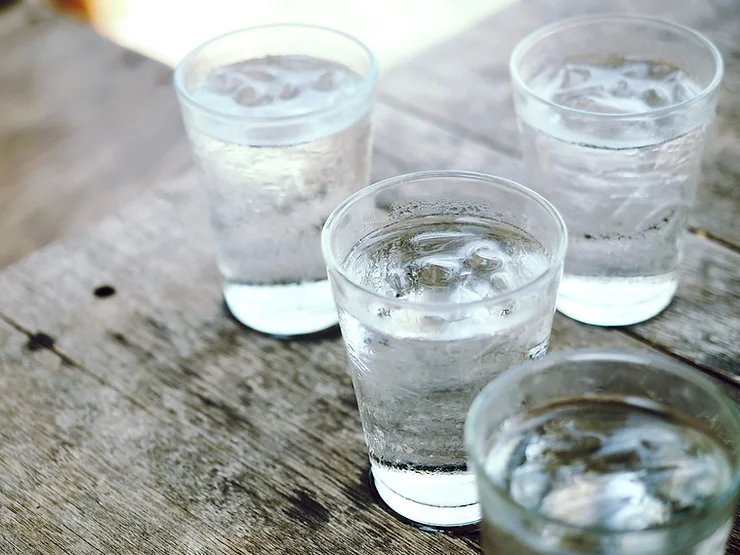All our cell is in and surrounded by water; we need water to survive, function, and our system run properly. To this day people still struggle to get the recommended amounts in daily (2 liters for women & 3 liters for men, based on a sedentary adult); leading to constant states of dehydration, reduced brain function, and inadequate fluid balance in the body that is essential to maintain homeostasis.
Let us explore the fascinating job that water does for us through fluid balance and the effect of dehydration has on the body!
ater is what makes us who we are if you look at how different cells in our body contain different amounts of water, the amount is staggering.
There are intercellular and extracellular fluid that in the body, this means water is inside our cells and outside our cells. Intercellular fluid makes up about 2/3 of the bodies water and extracellular fluid its around 1/3 of the bodies water. The water that is found inside the cells are enclosed in the cell membrane and these are higher in potassium and magnesium, lower in sodium and chloride. Our bodies use these mineral and metals to help maintain electrolyte levels.
The water found outside of cells contribute to 25% within the vascular system, makes up plasma portion of blood volume, 75% which is interstitial fluid, these surrounds cells and connective tissue to help with sliding filaments in muscle and fascial tissue move
Muscle contains lots of water and electrolytes which help carry an electrical charge through out the body supporting the central nervous system.
Compared to many biological stimuli we do not “adapt” to dehydration; we cannot “train: for this and there is no “cure”, we must replenish the fluid loss. We must maintain homeostasis with hydration to keep an equal amount of fluid balance. Keeping in mind with energy in vs. energy out, the same concept should be applied with fluid balance as well.
Hydration can come on fast; let review the symptoms so we can be on top of it when it happens!
Symptoms of dehydration:
· Headache
· Fatigue
· Low blood pressure
· Dizziness or fainting
· Nausea
· Flushed skin
· Increased rapid heart rate
If these symptoms sound like a hangover; then you guessed, it! Alcohol can suppress hormones that control water regulation in the body and your thirst levels. If we remain dehydrated over time this places stress on the body and can lead to death if you do not replenish those fluids.
Some of the consequences that come with water loss:
· 0.5% Increases stress & strain on the heart, making the organ pump faster
· 1% Reduces performance in aerobic endurance
· 3% Reduces performance with muscular endurance
· 4% Reduces muscle strength, motor recruitment, and causes heat cramps
· 5% Heat exhaustion, cramping, fatigue, reduced mental state
· 6% Physical exhaustion, heat stroke, coma
· 10-20% Death
If you notice it does not take much to cause fluid imbalances in the body, that’s why its so important to stay hydrated throughout the day. Our body composition and along with hormones determine how much water we carry around daily. Just as we talked about earlier with our cells containing different amounts of water.
What does our organs, muscle, and skeleton contain?
· Bones in the body are about 22% water
· Adipose tissue is about 25%
· Brain tissue and muscles 75%
· Blood is 83%
· Eyes are a whopping 95% water!
It is amazing how much water we need and use to keep our body running efficiently!
What exactly is the job of water? We understand the effects of dehydration, so what are the benefits of staying hydrated?
Water is a solvent that dissolves other substances like liquid, solids, and gases. Water breaks down and dissolves proteins and moves them around the body for proper distribution. Water brings nutrients to cells and carries waste production away.
Water synthesizes proteins, glycogen, and other macromolecules as well. Water helps decrease friction, lubricates joints, and is used as a shock absorbent for our eyes and spinal cord. Water is our natural thermostat too; it helps regulate our body temperature when we sweat keep us cooler.
Other important jobs that water does:
· Transports substances
· Starts chemical reactions
· It provides minerals to the body
When trying to anticipate fluid loss through out your daily routine there are important factors to consider. There is some time in-between losing your fluid and getting thirsty; like we talked about earlier even being a little dehydrated can put a damper on our physical and mental state. Understanding when to drink water and the right time can make a difference. This might be minor to someone who is more sedentary but if you have someone who works out in higher temperature, altitude, or humidity; drinking enough might be harder to determine.
Understanding that everyone is slightly different depending on the situation, environment, age, sex, and energy expenditure can determine how much extra water you need. The base line to follow is consuming 2 liters (8 cups) for women and 3 liters (12 cups) for men, that’s not include food intake on average people consume around 1 liter (4 Cups). Weight and size can vary from person to person as well, a larger person will need to consume more fluid that someone who is of smaller stature. If the weather is warmer and drier you might need 500ml (2 cups) more per day. Exercising hard during the week can increase your water intake up to 6 liters (24 cups) double of what a sedimentary individual needs due to fluid replacement.

